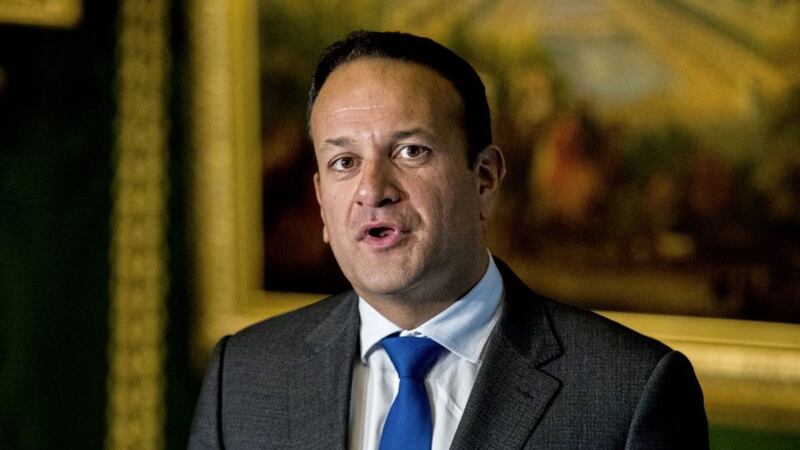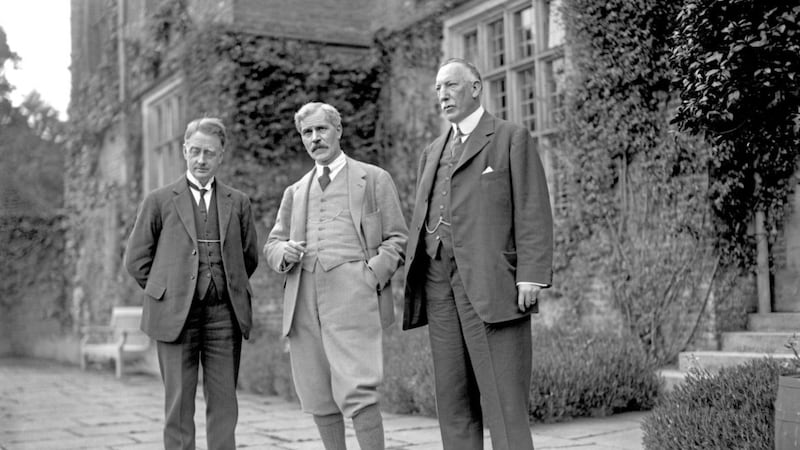Why has Brexit united nationalist Ireland and divided Britain? Although the Irish border is the core of Britain's Brexit conundrum, politics and society in Dublin are still in post-summer slumber.
In London, meanwhile, traditional politics are in meltdown and society is at its most divided since the English civil war in the 1640s. So how do we explain the contrasting attitudes between the two islands on EU membership?
The answer would appear to lie in different attitudes towards national consciousness and the politics and personalities which those differences have helped to create.
Ireland's national consciousness is based on a shared history of culture, language and tradition. These have been both shaped by, and reflected in, a political nationalism, which has campaigned for Irish independence.
What might be called British nationalism is more manufactured, since Britain consists of three distinct nations, each with its own culture and language. It appears to operate on hierarchy of Britishness, in which the English are the most British and the Scots are the least. This suggests a form of internal imperialism, which may explain the contrasting visions of where Britain should stand in the world.
Improved social and economic conditions in recent decades have diluted Ireland's thirst for independence into unequivocal support for EU membership. Irish nationalism, certainly in the south, is now more cultural than political.
In Britain, however, the anti-EU movement includes a range of arguments, some more ethical than others, advocating political independence. Devoid of a unifying culture, British nationalism is largely political.
Those differences between Britain and Ireland have thrown up contrasting personalities and politics.
Leo Varadkar's leadership style is based on carefully managed public relations. Boris Johnson doesn't do public relations. He just insults people. His concept of politics would appear to be the pursuit of power, by turning threat into opportunity and massaging that opportunity into a national crusade.
He has certainly hijacked Brexit in pursuit of his own political career. But he reduced his parliamentary majority from plus one to minus twenty-two in two days, which suggests that his ambition exceeds his ability.
Leo Varadkar also made Brexit a national crusade, but he united his electorate on it. By adopting the mantle of the anti-Brexit leader of Irish nationalism, he side-lined his political opponents. But failing to meet the DUP or the British was a high-risk strategy. A no-deal Brexit will probably end his political career, as he will inherit some blame for its inevitable economic chaos.
The electoral prospects for both Johnson and Varadkar are uncertain. Johnson's party leads in the polls, but the Tories are now so badly divided that pollsters might ask, "Which Conservative Party would you vote for?" The result of a forthcoming election is difficult to predict, because the normal rules of British politics no longer apply. However, Johnson has the advantage of having a clear policy on Brexit, unlike Jeremy Corbyn.
Varadkar is trailing in the polls, largely because of non-Brexit issues. In the event of an election, Fianna Fáil appears to have Labour, the Greens and some independents on their side. So Leo needs a good Brexit to remain in power. He has already incurred the disapproval of the US, as evidenced by Vice-President Mike Pence's advice to enter negotiations with Britain "in good faith". Even though it was given in American interests, it wasn't bad advice.
He should also listen to any offers Johnson may make on an all-Ireland agri-food policy, which would move us towards the special economic status for the north, which this column has advocated.
So as we reflect on a united, Irish cultural nationalism and a divided British political nationalism, there is one factor we have left out. Irish unionism has sided with Boris, not Leo.
So will Leo's nationalist unity on Brexit make Irish political unity more or less likely? The answer to that question will ultimately determine the political impact of Brexit on Ireland - and leave us in a better position to comment on divisions in Britain.









